-
 bitcoin
bitcoin $87959.907984 USD
1.34% -
 ethereum
ethereum $2920.497338 USD
3.04% -
 tether
tether $0.999775 USD
0.00% -
 xrp
xrp $2.237324 USD
8.12% -
 bnb
bnb $860.243768 USD
0.90% -
 solana
solana $138.089498 USD
5.43% -
 usd-coin
usd-coin $0.999807 USD
0.01% -
 tron
tron $0.272801 USD
-1.53% -
 dogecoin
dogecoin $0.150904 USD
2.96% -
 cardano
cardano $0.421635 USD
1.97% -
 hyperliquid
hyperliquid $32.152445 USD
2.23% -
 bitcoin-cash
bitcoin-cash $533.301069 USD
-1.94% -
 chainlink
chainlink $12.953417 USD
2.68% -
 unus-sed-leo
unus-sed-leo $9.535951 USD
0.73% -
 zcash
zcash $521.483386 USD
-2.87%
Is the breakout of the downward trend line with reduced volume a real breakthrough? Does it need to be confirmed by replenishing volume?
A breakout above a downtrend line on low volume may signal weak buying pressure, suggesting the move lacks conviction and could reverse.
Jun 19, 2025 at 09:42 am
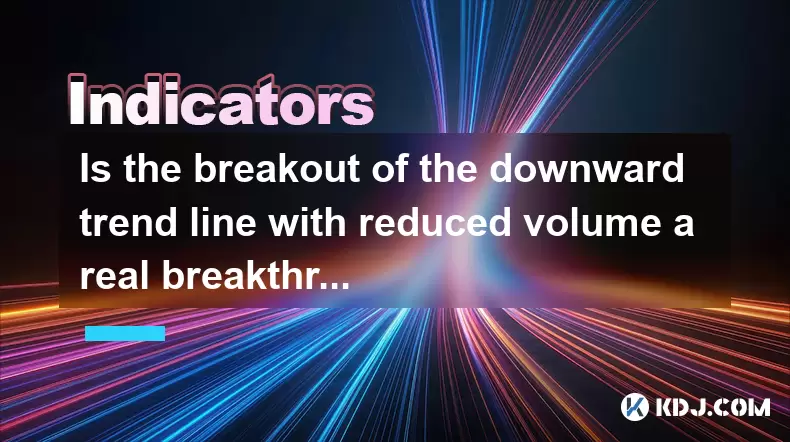
Understanding a Breakout in Technical Analysis
In cryptocurrency trading, a breakout refers to the price moving beyond a defined support or resistance level, often signaling a potential shift in market sentiment. A downward trend line is drawn by connecting a series of lower highs, indicating bearish momentum. When this trend line is breached from below and the price moves upward, it may suggest that the downtrend is losing strength.
However, not all breakouts are created equal. One critical factor traders monitor during such movements is volume. Volume reflects the number of assets traded over a given period and serves as a confirmation tool for price action. A breakout with reduced volume raises concerns about its legitimacy.
Key Takeaway: A breakout on low volume may lack conviction from buyers and could result in a false signal.
The Role of Volume in Confirming Breakouts
Volume plays a crucial role in validating technical patterns. In traditional chart analysis, a breakout accompanied by high volume is considered more reliable because it indicates strong participation from market participants. This principle applies equally within the cryptocurrency space, where volatility and liquidity can fluctuate rapidly.
When a downward trend line is broken but volume remains low, it suggests that the buying pressure may not be sufficient to sustain the new direction. Traders often wait for a volume surge after the initial breakout to confirm whether the move has real momentum.
- High volume during a breakout confirms increased interest and potential continuation of the trend.
- Low volume during a breakout may indicate hesitation or lack of confidence among traders.
This dynamic is particularly relevant in markets like crypto, where large institutional players can influence movement through significant trades.
How to Analyze a Low-Volume Breakout
When evaluating a breakout from a downward trend line with reduced volume, several analytical tools and techniques can help determine its validity:
- Check for retesting of the trend line: After the initial breakout, if the price returns to test the former resistance (now support) and holds, it can signal a valid shift.
- Observe candlestick patterns: Bullish candle formations around the breakout area may reinforce the likelihood of a genuine reversal.
- Use oscillators like RSI or MACD: These indicators can provide additional signals regarding momentum and possible exhaustion of the downtrend.
It's also essential to consider the broader context, such as market news, macroeconomic factors, and sector-specific developments, which might influence short-term price behavior independently of technical patterns.
What Is Replenishing Volume and Why It Matters
Replenishing volume refers to a noticeable increase in trading volume following an initial breakout. This phenomenon helps confirm that the breakout wasn’t just a temporary spike or manipulation by whales or bots. In many cases, especially in low-liquidity altcoins, price can briefly break out due to minor trades before quickly reversing.
Traders often look for volume to return to average or above-average levels within a few candles or sessions after the breakout. If this occurs, it supports the idea that the breakout has real traction.
- Replenishing volume strengthens the breakout signal, increasing confidence in the new trend direction.
- Absence of replenishing volume may lead to a failed breakout, resulting in a return to the previous trend.
For example, if Bitcoin breaks out of a long-term downtrend but does so on very low volume, experienced traders may wait for a close above key resistance with higher-than-usual volume before entering long positions.
Practical Steps to Confirm a Breakout in Crypto Markets
Here’s a step-by-step guide to assess whether a breakout from a downward trend line is legitimate:
- Identify the trend line accurately: Ensure it connects at least two or three significant price points to validate its significance.
- Monitor the initial breakout: Note the candlestick pattern and whether the price closes convincingly above the trend line.
- Check accompanying volume: Compare the breakout candle’s volume with the average volume over the past 10–20 periods.
- Wait for a pullback or retest: Observe how the price behaves when revisiting the breakout zone — solid support here adds credibility.
- Look for replenishing volume: If volume increases again after the initial breakout, it reinforces the likelihood of a sustainable move.
These steps apply across various timeframes, from intraday charts to weekly structures, though longer timeframes tend to offer more reliable signals.
Frequently Asked Questions
Can a breakout still be valid even if volume doesn’t increase?Yes, although it’s riskier. Some breakouts occur in anticipation of news or events where traders act early without waiting for volume confirmation. However, these types of breakouts carry a higher probability of failure compared to those supported by rising volume.
How long should I wait for volume to replenish after a breakout?Typically, traders watch for volume to pick up within the next 2–5 candlesticks. The exact timeframe depends on the chart interval being used — shorter intervals may require quicker confirmation, while daily or weekly charts allow for more patience.
Is it possible for volume to be manipulated in crypto markets?Unfortunately, yes. Many smaller exchanges and altcoins experience wash trading, where artificial volume is generated to mislead traders. Always cross-reference volume with other metrics and use trusted platforms to verify data.
Should I always wait for volume confirmation before entering a trade?While it’s generally safer to wait for volume confirmation, some strategies rely on early entry based on price action alone. Aggressive traders may enter on the initial breakout but manage risk tightly through stop-loss orders. Conservative traders prefer waiting for stronger evidence of commitment from the market.
Disclaimer:info@kdj.com
The information provided is not trading advice. kdj.com does not assume any responsibility for any investments made based on the information provided in this article. Cryptocurrencies are highly volatile and it is highly recommended that you invest with caution after thorough research!
If you believe that the content used on this website infringes your copyright, please contact us immediately (info@kdj.com) and we will delete it promptly.
- Shiba Inu Developer Defends Leadership Amidst Price Criticism, Eyes Future Developments
- 2026-02-01 03:50:02
- Dogecoin's Volatile Dance: Navigating Hidden Opportunities Amidst Nuclear Risk
- 2026-02-01 04:25:01
- MEXC's Gold Launchpad Ignites Zero-Fee Investments in Tokenized Gold Amidst Gold's Record Rally
- 2026-02-01 04:40:02
- DOGEBALL Unleashes L2 Gaming Revolution with Explosive Crypto Presale
- 2026-02-01 04:35:01
- GPT-5's Foresight, Solana's Frontier, and Ethereum's Enduring Gauntlet: Navigating the New Crypto Epoch
- 2026-02-01 04:35:01
- Crypto Coaster: Bitcoin Navigates Intense Liquidation Hunt as Markets Reel
- 2026-02-01 00:40:02
Related knowledge
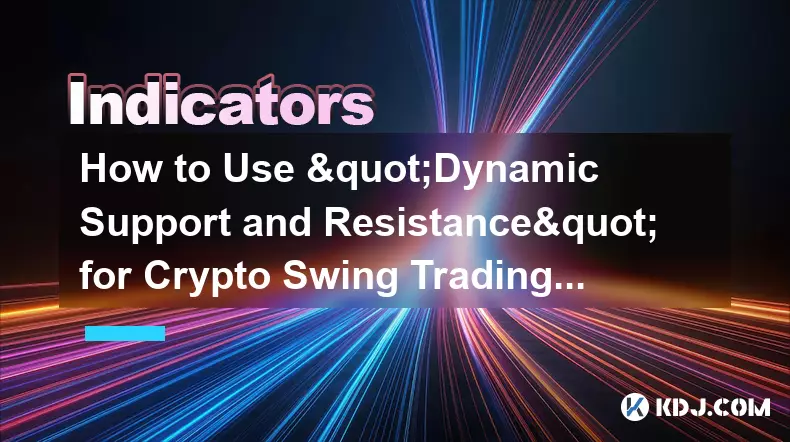
How to Use "Dynamic Support and Resistance" for Crypto Swing Trading? (EMA)
Feb 01,2026 at 12:20am
Understanding Dynamic Support and Resistance in Crypto Markets1. Dynamic support and resistance levels shift over time based on price action and movin...
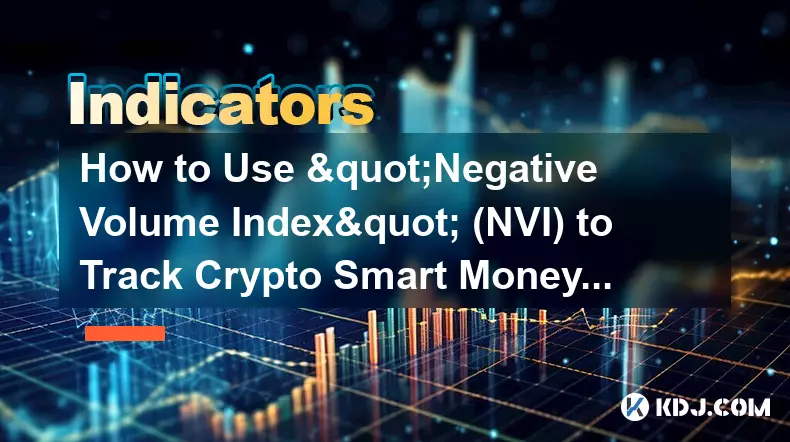
How to Use "Negative Volume Index" (NVI) to Track Crypto Smart Money? (Pro)
Feb 01,2026 at 02:40am
Understanding NVI Mechanics in Crypto Markets1. NVI calculates cumulative price change only on days when trading volume decreases compared to the prio...
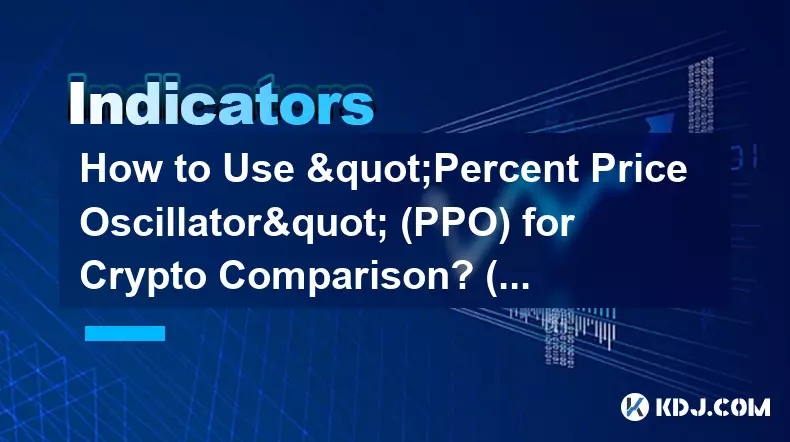
How to Use "Percent Price Oscillator" (PPO) for Crypto Comparison? (Strategy)
Feb 01,2026 at 01:59am
Understanding PPO Mechanics in Volatile Crypto Markets1. The Percent Price Oscillator calculates the difference between two exponential moving average...
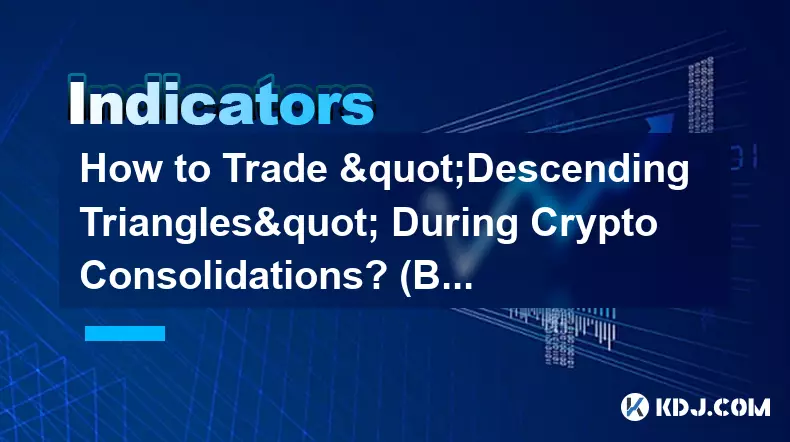
How to Trade "Descending Triangles" During Crypto Consolidations? (Breakout Logic)
Jan 31,2026 at 08:39pm
Understanding Descending Triangle Formation1. A descending triangle emerges when price creates a series of lower highs while maintaining a consistent ...
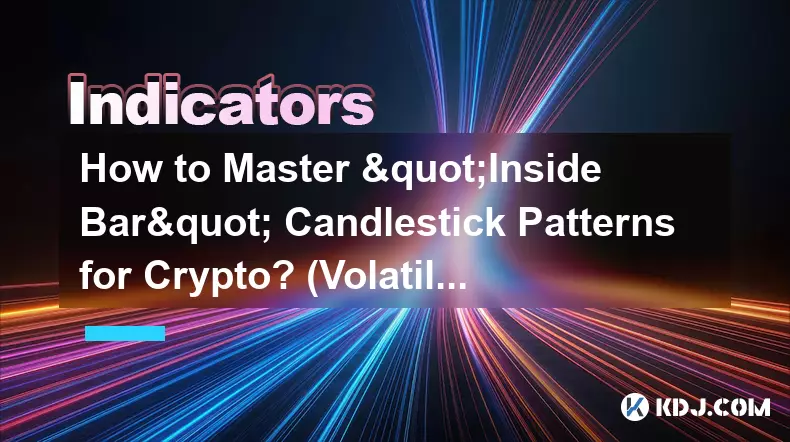
How to Master "Inside Bar" Candlestick Patterns for Crypto? (Volatility Breakout)
Feb 01,2026 at 04:40am
Understanding the Inside Bar Structure1. An inside bar forms when the high and low of a candle are completely contained within the prior candle’s rang...
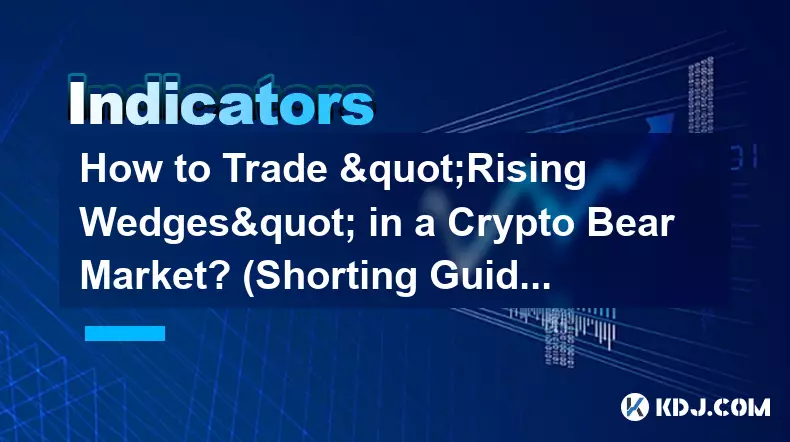
How to Trade "Rising Wedges" in a Crypto Bear Market? (Shorting Guide)
Jan 31,2026 at 09:40pm
Understanding Rising Wedge Formation1. A rising wedge appears when both the price highs and lows form upward-sloping, converging trendlines, with the ...

How to Use "Dynamic Support and Resistance" for Crypto Swing Trading? (EMA)
Feb 01,2026 at 12:20am
Understanding Dynamic Support and Resistance in Crypto Markets1. Dynamic support and resistance levels shift over time based on price action and movin...

How to Use "Negative Volume Index" (NVI) to Track Crypto Smart Money? (Pro)
Feb 01,2026 at 02:40am
Understanding NVI Mechanics in Crypto Markets1. NVI calculates cumulative price change only on days when trading volume decreases compared to the prio...

How to Use "Percent Price Oscillator" (PPO) for Crypto Comparison? (Strategy)
Feb 01,2026 at 01:59am
Understanding PPO Mechanics in Volatile Crypto Markets1. The Percent Price Oscillator calculates the difference between two exponential moving average...

How to Trade "Descending Triangles" During Crypto Consolidations? (Breakout Logic)
Jan 31,2026 at 08:39pm
Understanding Descending Triangle Formation1. A descending triangle emerges when price creates a series of lower highs while maintaining a consistent ...

How to Master "Inside Bar" Candlestick Patterns for Crypto? (Volatility Breakout)
Feb 01,2026 at 04:40am
Understanding the Inside Bar Structure1. An inside bar forms when the high and low of a candle are completely contained within the prior candle’s rang...

How to Trade "Rising Wedges" in a Crypto Bear Market? (Shorting Guide)
Jan 31,2026 at 09:40pm
Understanding Rising Wedge Formation1. A rising wedge appears when both the price highs and lows form upward-sloping, converging trendlines, with the ...
See all articles





















![THIS IS THE HARDEST COIN TO GET [POLY DASH] THIS IS THE HARDEST COIN TO GET [POLY DASH]](/uploads/2026/01/31/cryptocurrencies-news/videos/origin_697e0319ee56d_image_500_375.webp)




















































